The eerily similar backgrounds of three of the politicians hoping to succeed Angela Merkel speak to the continued under-representation of women at the top ranks of German politics, a problem which none of them seem to perceive, argues Constanze Stelzenmüller. This post originally appeared in the Financial Times.
Armin Laschet, Friedrich Merz and Norbert Röttgen are “white, married, Catholic father[s] of three from North Rhine-Westphalia, with an ear for music” according to a recent profile of the three men jostling to succeed Angela Merkel as Germany’s chancellor.
They also went to the same law school at the University Bonn, in the 1980s. I know, because I was there with them.
Our law school was one of the top three nationwide. But as West Germany’s capital, Bonn was also the only place to go for young conservatives intent on vaulting onwards to a political career. As a milieu, it was provincial, tribal, and intensely competitive.
It also goes a long way towards explaining the current moment of power competition in Germany’s centre-right.
Not that I knew the trio of candidates socially — although I crossed paths with them in the faculty building, and we must have sat in some classes together. I was an outsider: female, in a student body where distinctly less than half of the student body were women (by the time we sat for our finals, that had dwindled to one-quarter). Also a liberal in a majority conservative student body with a tiny hard-left opposition.
My male fellow-students were of a recognisable type. All of them seemed to wear a uniform of striped shirts, broadwale corduroy trousers, tweed jackets with leather elbow patches, and wingtip shoes. Some, the sons of senior civil servants, generals or ambassadors, exuded self-confidence and entitlement. Others made up for their lack of social status with even more seething ambition.
Most had done their obligatory military service straight after high school. Many had chosen to serve an extra six months, to earn a reserve officer grade; the snobs aimed for intelligence training. A rite of passage were the debating courses of the conservative Konrad Adenauer Foundation, where political hopefuls honed their speaking skills.
But the real key to success was joining a fraternity: either the duelling kind (yes, really — scars and all), or Catholic and non-duelling. The politics of both were conservative-to-reactionary. They inducted their fledgling members into social life through balls (girls required) and drinking evenings (absolutely no girls). Their alumni could be relied upon to help smooth the ascent of young career entrants. These vertical networks were called “Seilschaften”, like the rope teams in mountain climbing.
Messrs Merz, Laschet and Röttgen had all joined the Christian Democrats (CDU) by the time they were 18. Mr Merz did military service in the armoured artillery. Mr Laschet met his wife in the Catholic church choir, edited a church paper, and ran a church publishing house. Both Mr Merz and Mr Laschet were members of non-duelling fraternities: Mr Merz belonged to Bavaria, Mr Laschet to Ripuaria. (No similar membership is recorded for Mr Röttgen.) The alumni lists of Bavaria and Ripuaria include cardinals, cabinet ministers, professors, doctors, business leaders, lawyers.
All three have gone on to careers in journalism, business, and politics on their own merits. But their origins in a tightly knitted male West German conservative establishment of a certain time do show.
There is Mr Merz’s boundless self-assurance, and his conviction that he can root out support for the hard right Alternative for Germany by taking AfD-lite positions; Mr Laschet’s paternal demeanour and network of Catholic notables; Mr Röttgen’s announcement — still not acted upon — that his running mate would be “a woman”.
Ah yes, women. The networks, the “rope teams”, none of those support systems were available to female law students. So we learnt to fight on a playing field that was tipped against us.
A decade later, women began pushing open doors: at law firms, in boardrooms, in politics. When Angela Merkel became chancellor in 2005, that still seemed like a miracle. In 2018, when she was succeeded as party head by Annegret Kramp-Karrenbauer, and in the following year, when her fellow conservative Ursula von der Leyen became EU Commission president, it briefly seemed that women might have equalised at the very top of politics.
But the truth is that women continue to be woefully under-represented in most areas of German public life — including the CDU. Its new leadership contenders give no indication that they think that might be a problem.
In a fragmenting political landscape, with serious competition from the Greens on one side and the AfD on the other, this question might turn out to be a key test for its future. And theirs.
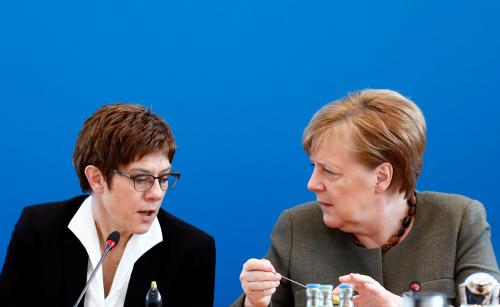
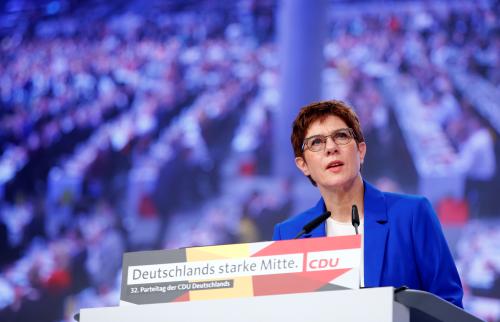
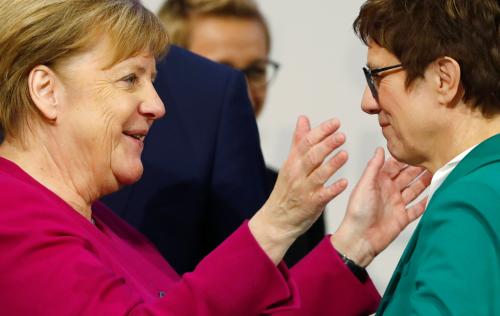

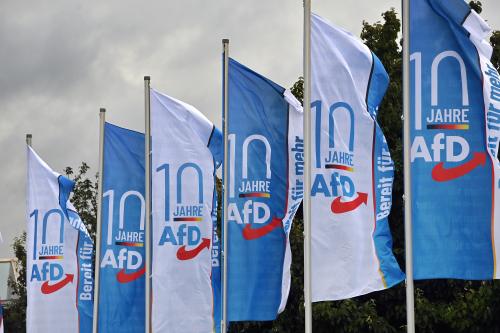
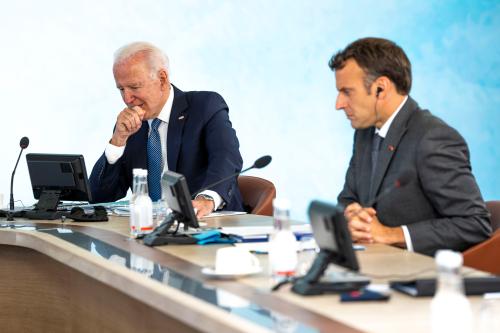
Commentary
The fratboys vying to succeed Angela Merkel
March 5, 2020